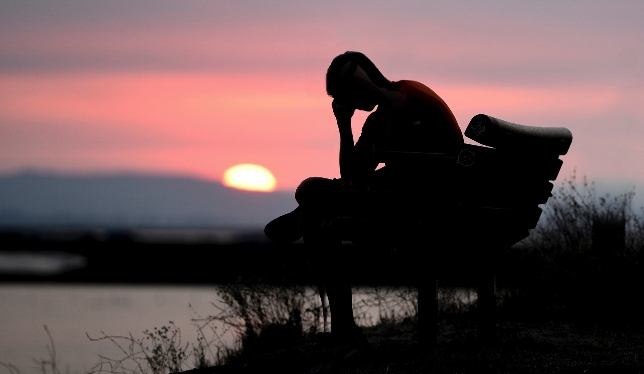York study examines link between mattering and depression in students
Psychologists surveyed hundreds of first-year students to determine how a sense of belonging and mattering affects well-being.

In the face of COVID-19, classes this winter semester have quickly wrapped up or moved online, and campuses have shut down entirely, with university administrations telling staff to work from home and, in some cases, telling students to vacate residence halls. But as campus life adjusts to social distancing and self-isolation, how can administrators prevent the students who depend on campus resources from falling through the cracks?
That was the question on Kathleen Bateman’s mind this March as McGill University worked to address the rapidly developing COVID-19 situation. As associate director of health promotion and outreach, Ms. Bateman heads up the Healthy Living Annex, the health-promotion arm of McGill’s brand new $14-million Student Wellness Hub, which opened in September. The facility represents a new so-called “holistic” model of addressing student mental health and well-being. “It’s a new approach to looking at physical and mental health as a collaborative stepped care model, which means ensuring students are supported regardless of what they come in for,” Ms. Bateman said.
As she plotted out the best course of action for addressing the effects of the pandemic on the institution’s delivery of mental-health services, one particular concern kept coming up: “How do we create a sense of community for the students when they have to be in isolation?”
How a sense of mattering affects student well-being is the subject of a recently published study out of York University, led by Gordon L. Flett, a psychology professor and director of York’s LaMarsh Centre for Child and Youth Research. Through a multi-site survey funded through the Canadian Institutes of Health Research, Dr. Flett and his colleagues asked 247 undergraduate students in their first year of university about the bonds that they had made with other students, with faculty members and with a community. They found a clear, negative connection between depression and feelings of mattering.
“Mattering” in this instance refers to the concept of relational mattering – the links that a person has with others that gives them a sense of importance, a sense that they are significant in the eyes of others. “One of the things it involves is the sense that people are paying attention to you, that you’re important enough [to be] getting the attention of others,” explained Dr. Flett. “Another facet is that you can have a sense of mattering because others have come to depend on you.” A person’s sense of whether or not they matter is especially fragile during times of significant life transitions, he added, which makes students shifting from high school to university prime subjects for such research.
The researchers used a five-question scale to measure a student’s sense of whether they mattered or not. Survey questions included, “To what extent do you feel like you’re important to other people?” Dr. Flett said the students’ answers pointed to some unexpected conclusions.
“One thing that was surprising was that even though mattering was highly correlated in a negative way with other vulnerability factors – like insecure attachment [a persistent feeling of insecurity in important relationships that leads to anxiety or avoidance], rumination and self-criticism to the point of self-hate – it still predicted depressive symptoms uniquely,” he explained. In essence, first-year students who reported feeling like they didn’t matter tended to feel more depressed. “It wasn’t a large amount of variability that was accounted for, but it was still significant above and beyond what I call ‘big-ticket predictors [of depression],’ like insecure attachment and abject self-criticism.”
Equally important to students’ feelings of mattering are feelings of what Dr. Flett calls “anti-mattering,” where students believe a person is going out of their way to make them feel as though they don’t matter. Marginalization, for example, is a form of “anti-mattering.” “Everyone needs to feel valued, not just that their cultural traditions are valued, but that they themselves feel valued,” he said. “Feeling invisible, feeling insignificant, not having a voice or sense of self-determination – these are all things that promote the sense of not-mattering.” He added that feeling like you don’t matter or belong also tends to make a person feel ashamed and stigmatized, and less likely to seek help.
For her part, Ms. Bateman, who takes a preventative approach in her work at McGill, said the findings of the York study reinforce the value of a proactive mindset to mental health. “It makes a lot of sense, we need to rethink how we bring these students together so that they feel they’re a part of a community,” she said. Fostering a sense of mattering can be part of a mental-health intervention that’s put into place early on, rather than waiting until a student reaches a crisis point.
Ms. Bateman was quick to point out the myriad ways in which McGill is working toward building community amongst its 40,000 students, but also admits, “we’re still figuring it out. Change is sometimes a slow process, and at McGill I’m really proud to work with a team of professionals who really believe in the same thing: supporting students where they’re at.” With students off-campus during the pandemic, that’s meant the Hub has had to find new ways to do that: phone appointments with a Hub nurse, daily meetings for a COVID-19 emotional support group online, a weekly online workshop for managing stress in uncertain times, plus a host of web-based tools for student mental health – all in an effort to show students that they matter.
Dr. Flett also noted that there are already effective models that universities across the country could adopt to put his findings into action. One example is We Matter, a multimedia campaign led by Indigenous youth that works to build community strength and identity through art and video testimonials. “What I tell parents and educators is: don’t assume that they [youth] feel like they matter; show them proactively.”
He added that feeling like you don’t matter or belong leads to feeling shame and stigma, which ultimately make a student less inclined to ask for help – and that much more likely to fall through the cracks.
Featured Jobs
- Sociology - Professor (Quantitative Data Analysis Methods and Social Statistics)Université Laval
- Law - Assistant or Associate Professor (International Economic Law)Queen's University
- Business - Assistant Professor (Digital Technology)Queen's University
- Biochemistry, Microbiology and Bioinformatics - Faculty Position (Microbial Systems Biology, Omics Data Analysis)Université Laval
- Director and Stauffer-Dunning Chair, School of Policy Studies - Associate or Full ProfessorQueen's University















Post a comment
University Affairs moderates all comments according to the following guidelines. If approved, comments generally appear within one business day. We may republish particularly insightful remarks in our print edition or elsewhere.
2 Comments
Terrific article with important insights. Thanks.
Programs offered by universities and colleges for student mental health are of course well intentioned. Yet there is something deeply, fundamentally, structurally messed up about armies of young people showing up at institutions with “please fix my deep sense of alienation and uncertainty.” We can feel compassion for students’ suffering while still asking critical questions about why and how providing mental health services now actively competes with providing an education.